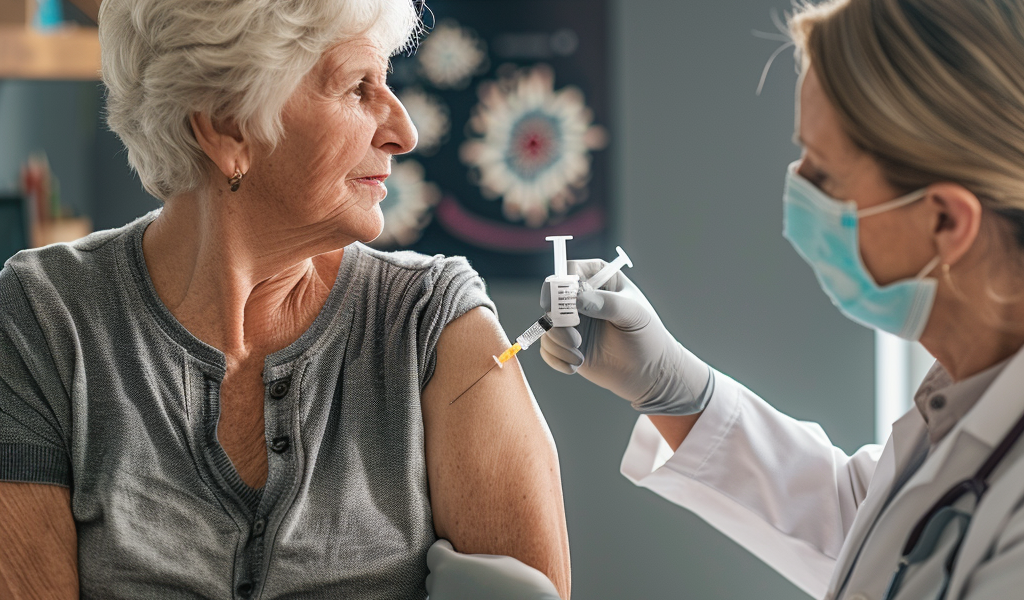In recent months, a noticeable surge in pneumonia cases has been reported across Maryland and the entire United States. This uptick has prompted the U.S. Centers for Disease Control and Prevention (CDC) to revise its vaccination recommendations, particularly targeting individuals aged 50 and older. This new guidance comes as health officials aim to combat the rising incidence of pneumonia, which has been on the rise since late summer.
Previously, the CDC recommended that individuals start receiving the pneumonia vaccine at age 65. However, due to the increased number of cases and the changing landscape of pneumonia infections, the age threshold has now been lowered to 50. The vaccine currently recommended by the CDC protects against approximately 20 different types of bacterial pneumonia. However, it is important to note that it does not cover mycoplasma pneumoniae, the strain that has been increasingly infecting children during this wave.
Dr. Gregory Schrank, an infectious disease specialist affiliated with the University of Maryland System, explains the rationale behind the CDC’s updated recommendations. He indicates that while there has been a significant rise in mycoplasma pneumonia cases among children, there has also been a concerning trend of pneumococcal pneumonia infections among those aged 50 and older. The CDC’s decision to broaden the vaccination age was influenced by observed data showing an alarming increase in pneumococcal pneumonia cases post-COVID-19, reversing a prior downward trend.
Despite the CDC’s focus on vaccinating older adults, it is crucial to recognize that there is currently no vaccine available for mycoplasma pneumonia. This particular strain is known for causing symptoms that can resemble those of the flu, including fever, cough, and fatigue. However, pneumococcal pneumonia can lead to more severe complications, such as bloodstream infections and meningitis, which can be life-threatening.
The reasons behind the recent rise in pneumonia cases, particularly in the context of the COVID-19 pandemic, are still being investigated. Data indicates that children aged 5 and younger, as well as older adults aged 65 and above, have been significantly affected. Furthermore, there has been an increase in infections among those aged 50 to 64, many of whom possess underlying health conditions such as chronic respiratory issues or diabetes.
Given the prevalence of health conditions among individuals in their 50s, the CDC has opted to recommend vaccination for all individuals in this age group rather than attempting to differentiate based on specific health risks. This broad approach aims to ensure that those most vulnerable to pneumonia are protected, especially in light of the current health crisis.
As pneumonia cases continue to rise, healthcare providers are urging individuals, particularly those over 50, to consider vaccination as a proactive measure. While the pneumococcal pneumonia vaccine may not address all forms of pneumonia, it plays a critical role in reducing the risk of severe illness associated with the bacterial strains it covers.
In conclusion, the CDC’s updated vaccination recommendations reflect a growing awareness of the changing dynamics of pneumonia infections in the post-COVID-19 landscape. As health officials continue to monitor the situation, it remains essential for individuals to stay informed about their vaccination options and to consult with healthcare professionals regarding their personal health needs.





